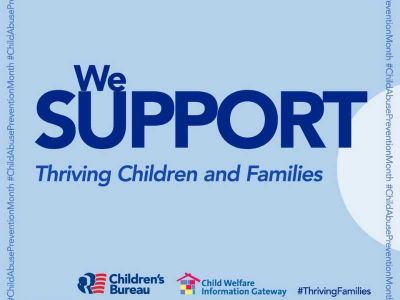Apr 5th, 2022
April's National Child Abuse Prevention Month recognizes the importance of communities working together to help families thrive and prevent child maltreatment. The Cape Girardeau County Public Health Center supports this effort to encourage increased awareness about child and family well-being and working together to implement effective strategies that support families and prevent child abuse and neglect.
Protective Factors
Protective factors are conditions or attributes that, when present in families and communities, increase the well-being of children and families and reduce the likelihood of maltreatment. Identifying protective factors helps parents find resources, supports, or coping strategies that allow them to parent effectively—even under stress. There are 6 protective factors:
- Nurturing and attachment
- Knowledge of parenting and of child and youth development
- Parental resilience
- Social connections
- Concrete supports for parents
- Social and emotional competence of children
ACEs
Adverse Childhood Experiences (ACEs) are traumatic events that occur before a child reaches the age of 18. These include:
- All types of abuse and neglect
- Parental substance use or mental illness
- Parental incarceration
- Domestic violence
- Divorce
By definition, children involved with the child welfare system have suffered at least one ACE. Understanding the impact of ACEs and how to build resilience in children and families can lead to more trauma-informed interventions that help to mitigate negative outcomes.
We believe that thriving families depend on strong support systems. Support can come from family, friends, neighbors, and others in the community. Learn what it takes to invest in families by visiting the National Child Abuse Prevention Month website. Prevention starts with you!
Source: NCAPM website
Updated: 4/29/24

